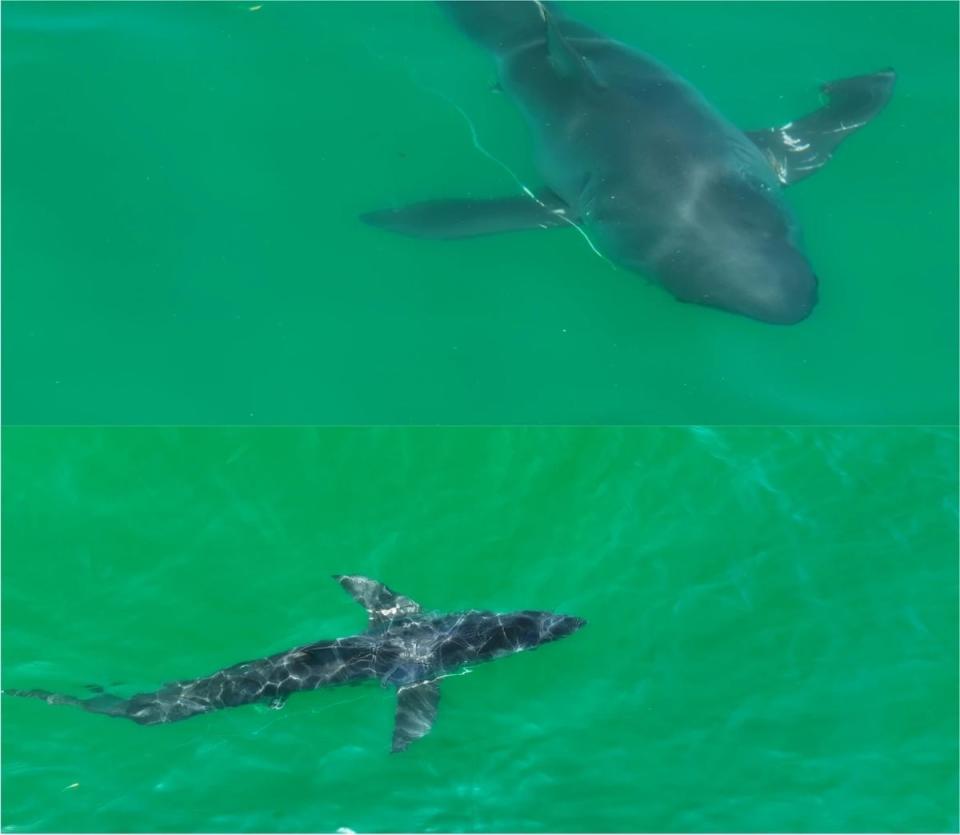Baby great white shark spotted in wild for first time, experts believe

A newborn great white shark has been spotted in the wild for the first time, experts believe.
The baby shark was spotted in waters off Santa Barbara in southern California last July by wildlife filmmaker, Carlos Gauna, and biology doctoral student, Phillip Sternes. The sighting of the vulnerable species captured by a drone that Mr Gauna was operating.
“In my opinion, this one was likely hours, maybe one day old at most,” Mr Sternes said, in a statement.
“We enlarged the images, put them in slow motion, and realized the white layer was being shed from the body as it was swimming. I believe it was a newborn white shark shedding its embryonic layer.”

In peer-reviewed findings, published on Monday, the experts said that the shark was either a newborn, or an older shark with “an unknown skin disorder resulting in shedding”.
However, the authors leaned towards the shark being a newborn due to the presence of large and likely pregnant great whites in the area, along with the creature’s shape and size.
“I filmed three very large sharks that appeared pregnant at this specific location in the days prior,” Mr Gauna said.
“On this day, one of them dove down, and not long afterwards, this fully white shark appears. It’s not a stretch to deduce where the baby came from.”
Great white shark breeding habits remain mysterious both due to their scarcity, and the difficulty of following them in deep water, National Geographic reported.
It’s extremely difficult for experts to even accurately count the great white population. Some experts have estimated that there are less than 3,500 great whites globally while others have recorded more than 5,000 off the coast of Australia alone, according to the International Fund for Animal Welfare.
Many academics have theorized that great whites breed in deep waters but this baby shark was observed in relatively shallow waters, just 1,000ft from the shoreline.
If great whites are giving birth in shallower waters, the discovery has implications on how to protect a species considered vulnerable to extinction, Mr Sternes said.

“More effort and stricter management might be required to protect not only this area but the entire coastline extending down to Baja California as well for white shark conservation,” the researchers wrote.
Great white sharks are heavily protected off the California coast but that doesn’t stop the occasional fisherman from accidentally catching one.
Mr Sternes called on lawmakers to pursue greater protections, if the shark is confirmed to be a newborn.
“Further research is needed to confirm these waters are indeed a great white breeding ground,” Mr Sternes said. “But if it does, we would want lawmakers to step in and protect these waters to help white sharks keep thriving.”


